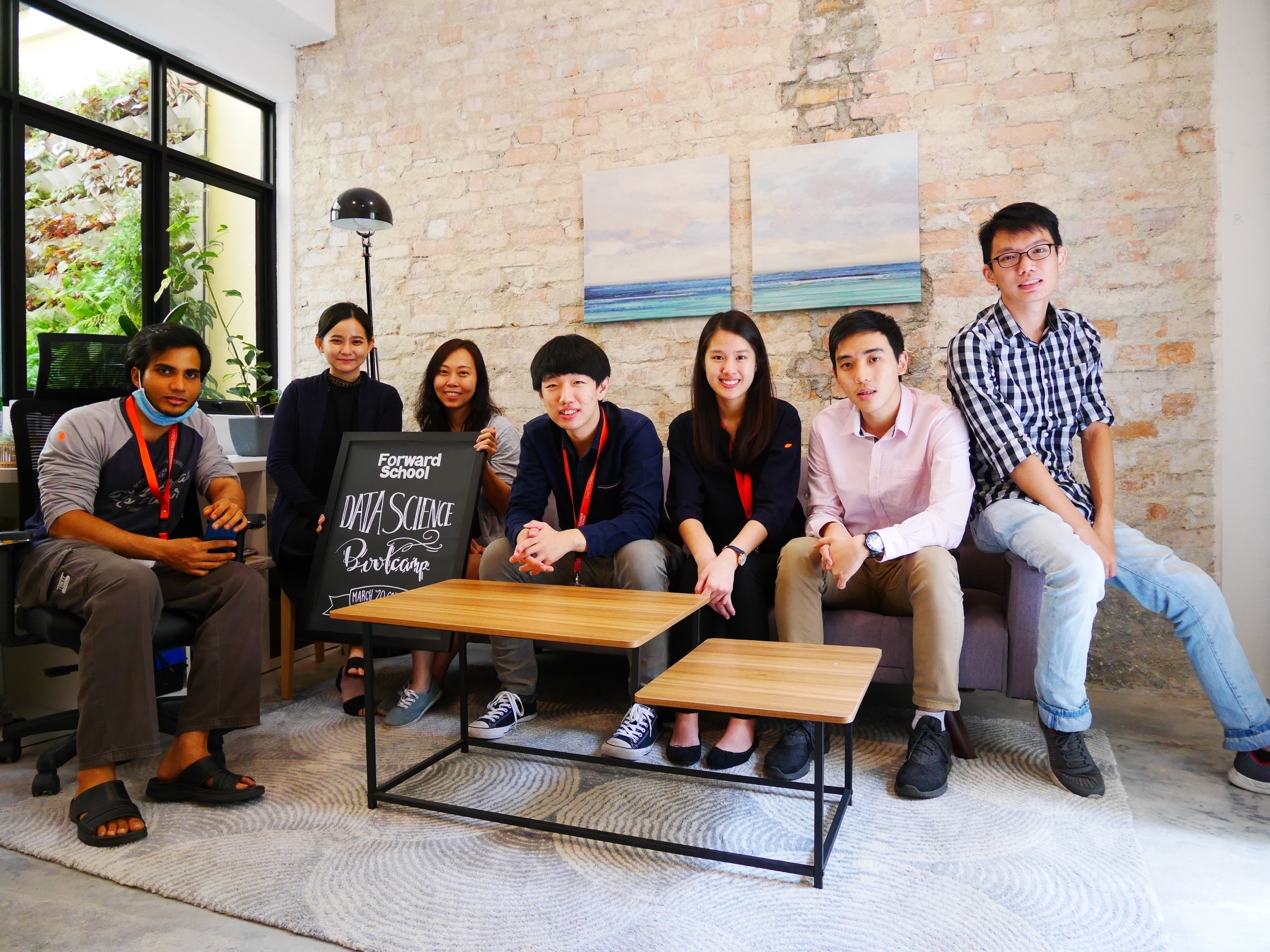We are living in the era of code. Everyone is desperate to hire developers. Yet, 9 out of 10 fresh graduates I’ve previously received for every programming role lack relevant skills for workplace readiness — let alone make an app.
The fundamental problem lies in what our university students study. Most of the time, it’s textbook-based, and not industry-relevant. They learn to code in lecture halls instead of building projects. They would only start actually building for their final year projects. And when they eventually graduate from their four-year degree, employers still need to retrain them as they lack the real competencies. Universities weren’t designed for rapid curriculum changes and introduction of new classes at the pace required by changing industry requirements. As a result, there is a significant mismatch between the skills employers seek and those students possess upon graduation.
The cycle continues to persist.
That’s the reality we are facing. It’s a big problem, especially as talent shortages pose a huge risk to both local and global businesses. A report by the World Economic Forum claims that more than half of the employers reported that talent shortages “significantly impact their ability to meet client needs,” while 40 per cent said, “shortages reduce their competitiveness and productivity”.
There’s no lack of good ideas in Malaysia but we are always lacking talents who can actually execute them. Our talents simply don’t have the right technical competencies, experience and soft skills.
The situation shouldn't be this way, I told myself.

Addressing the talent gap
I’ve spent a fair share of my career in the tech startup scene in Singapore. Almost two decades, in fact. As a hiring manager myself, I’ve seen the large disconnect between university graduates and industry expectations.
I wanted to change this sordid state of affairs.
And my resolve to address this problem was strengthened when I returned to Penang four years ago and became a consultant to the Penang State Government, tasked with growing the start-up ecosystem.
In 2019, I founded Forward School, to address this talent gap.
With Forward School, the aim is to build the next generation of tech talent and equip students with industry-ready skills. Currently, it offers a rigorous and lengthy two-year curriculum in Applied Software Engineering or NitroDegree. Following graduation, our students will be matched with one of our hiring partners, with a guaranteed minimum salary of RM3,000. To date, we have 22 hiring partners including renowned tech companies ViTrox, Exabytes and Cytron Technologies, who have since pledged their support.
Through this, we hope to instil deeper critical thinking skills while also providing students with engineering and product skills that will allow them to be highly productive at startups and large tech companies.
For those seeking an upgrade in skills, short-term part-time courses on subjects such as Data Science Essentials and Applied Data Science are also offered, in addition to our recently launched one-month introductory class for those who wish to upskill their digital capabilities. We realise that a lot of people become quite intimidated when confronted with it, especially if they do not have adequate knowledge of the field. So the intent here is to make tech education accessible and get people excited about technology.
These courses vary depending on how one chooses to participate in the digital economy or to be a creator and maker, which is why I think this digital upskilling programme is perfect for any age range. It introduces ‘no-code’ solutions and tools for you to build a website and even a mobile app from scratch, without the need for touch codes. This is very much part of the Artificial Intelligence (AI) progress now that automation is becoming more prevalent.

Building a tech ecosystem on campus
When we started Forward School, we wanted an environment where the students could give 110% and be focused on what they do, especially those who are outside of Penang. There’s something about being immersed in an environment or culture that is training you to become a member of a group of engineers; you tend to want to talk more about technology and your work, and to mix with like-minded people. That’s the key.
This is why we also offer coworking and coliving facilities for start-ups, scale-ups and freelancers. We want the companies to be closer to our talents, literally. With this set-up, it helps foster a close working relationship between students and companies. Company leaders can impart their knowledge to the students, and the latter is able to observe the day-to-day activities of a working adult. It's an entire ecosystem in itself. Plus, many of our students are already interning with these companies or being offered part-time jobs.
To meet future demands, we firmly believe that having the right skill-sets will prove more significant than a paper qualification. Though still important today, a paper qualification is not able to accurately gauge the skills of a person. We should be moving towards skills and applied skills. But the hard truth is that plenty of companies still pair salaries to paper qualifications. You cannot be paying a diploma holder a lower salary when the skills he or she possesses are more relevant than a degree holder.

Accelerating the rise of the digital economy
More and more, our lives have become very much integrated with technology, without us even realising its presence. For instance, from purchasing a flight ticket to checking-in will require the use of mobile phones, the company’s application or website, or an airport kiosk – these are all powered by software or web applications. Now as you board your flight, it is the software that guides the plane to its destination, despite the pilots being responsible for the plane’s take-off and landing and during cases of emergency.
My point is, rather than resisting, businesses must overcome the fear of change and invest in technology. For many companies, the COVID-19 pandemic is probably the first time they have found themselves in a situation where they must pivot.
Sadly, many were unable to do so in time.
Businesses of today and tomorrow will need to think through their business models to ensure resilience as Covid-19 will certainly not be the final instance of unprecedented disruptions. Someday soon, companies will have to transition online, and this reinforces the need for skills-based schools.
Faced with uncertainty, businesses must be resourceful in seeking out alternative means for sustenance, be they in the form of grants or upskilling programmes. And there are plenty of resources out there by the various government agencies to help startups, SMEs and MNCs accelerate, grow and transform themselves digitally. For instance, Forward School is part of MaGIC’s Global Accelerator Programme where we were given access to quality training, mentors as well as access to route-to-market partners.
Despite the major upheavals it has caused, Covid-19 has also accelerated the process of digitalisation and to me, this is a silver lining for Malaysian’s embrace of technology.
This content is provided by Malaysian Global Innovation & Creativity Centre (MaGIC).
Interested in having your announcements on Malaysiakini? Contact the announcements team at [email protected] or whatsapp on +60 17-323 0707 for urgent matters.

